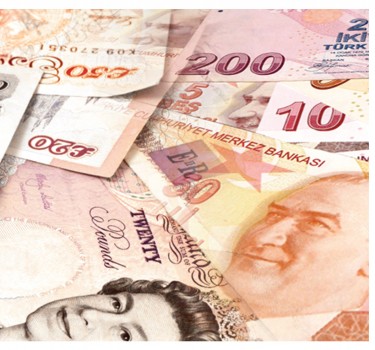Businessmen warn of bankruptcies as tumbling Turkish lira effectively devalues by more than a quarter.
BUSINESSES in North Cyprus have warned of mass bankruptcies if the Turkish lira continues to plummet on foreign exchange markets. On Wednesday evening the Turkish Central Bank said £1 was trading at 3.74 Turkish lira, a dramatic increase from one year ago when a pound would buy 2.79 TL. The rate rose by 0.12 in the last week alone in response to further political unrest in Turkey.
North Cypriots have been particularly badly affected because salaries are paid in lira, while property deals and rent transactions are normally made in sterling. Local press has reported that more than two thousand second-hand cars have been put up for sale in the Turkish Republic of Northern Cyprus in an attempt by their owners to pay off debt.
DEVALUATION IN ALL BUT NAME
Günay Çerkez, president of the Cyprus Turkish Chamber of Commerce, said the soaring exchange rate was effectively a 28 per cent devaluation: “It is not clear where this increase will end – and the uncertainty seems set to continue until local elections [to be held on the Turkish mainland at the end of March].”
“Everyone is worried in North Cyprus. We are so dependent on Turkey that there are few serious steps that the Turkish Cypriot government can take.”
Businesses in the construction sector have warned of looming bankruptcies.
“The official currency here is Turkish lira, but the construction sector trades in foreign currency. Not only are materials like iron and cement bought in dollars, but sales are made in sterling,” said Faik Dağaştı, head of KTIMB, the Cyprus Turkish Union of Building Contractors.
“Many construction companies have staggered payments. Thousands of people are paying mortgages in sterling. What are these people going to do?”
LIRA UNDER STRAIN
There has been immense pressure on the Turkish lira, particularly since a corruption and bribery scandal broke in the country on 17 December. The currency has also been affected by the Federal Reserve’s decision to taper its quantitative easing programme and Turkey’s large current account deficit.
The Turkish Republic of Northern Cyprus, a country not recognized by the international community, has used the Turkish lira as its currency since it was founded in 1983.
In recent years it enjoyed considerable stability, particularly in comparison to its southern Greek Cypriot neighbor, which has been plagued by a banking crisis and was forced to restructure the sector.
